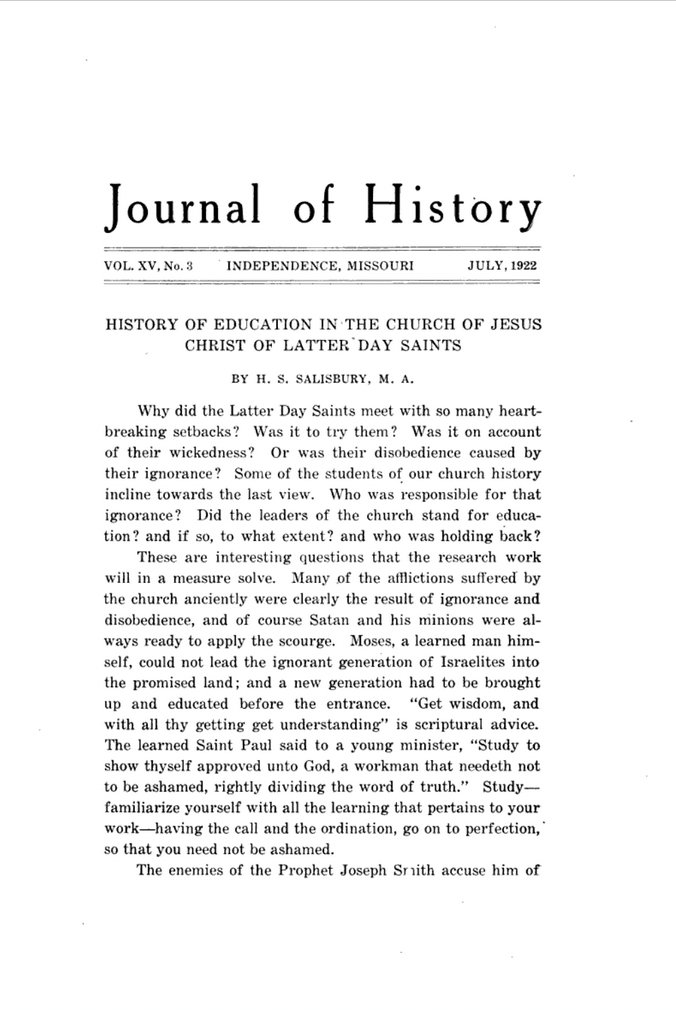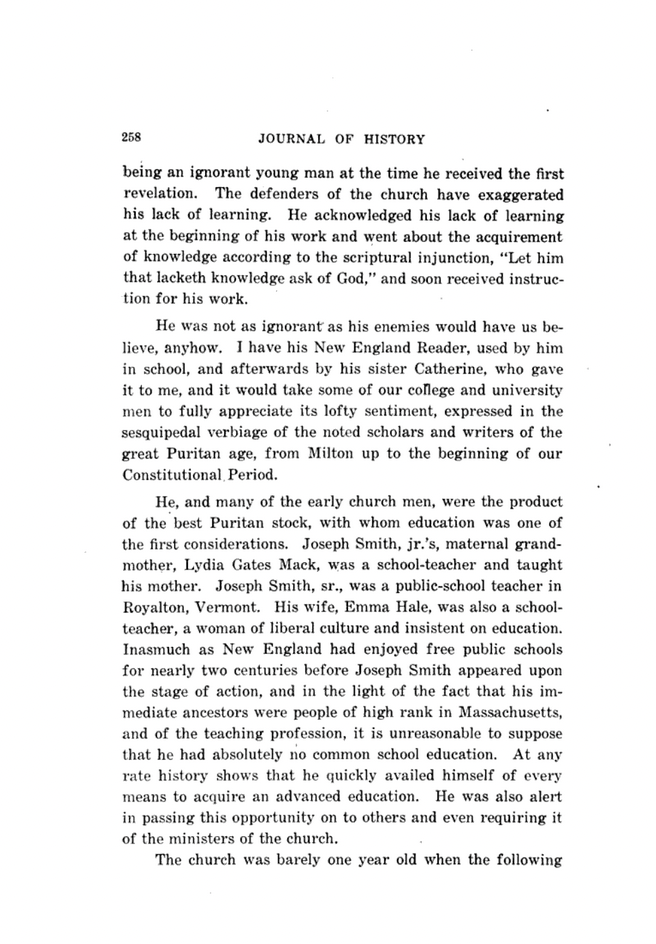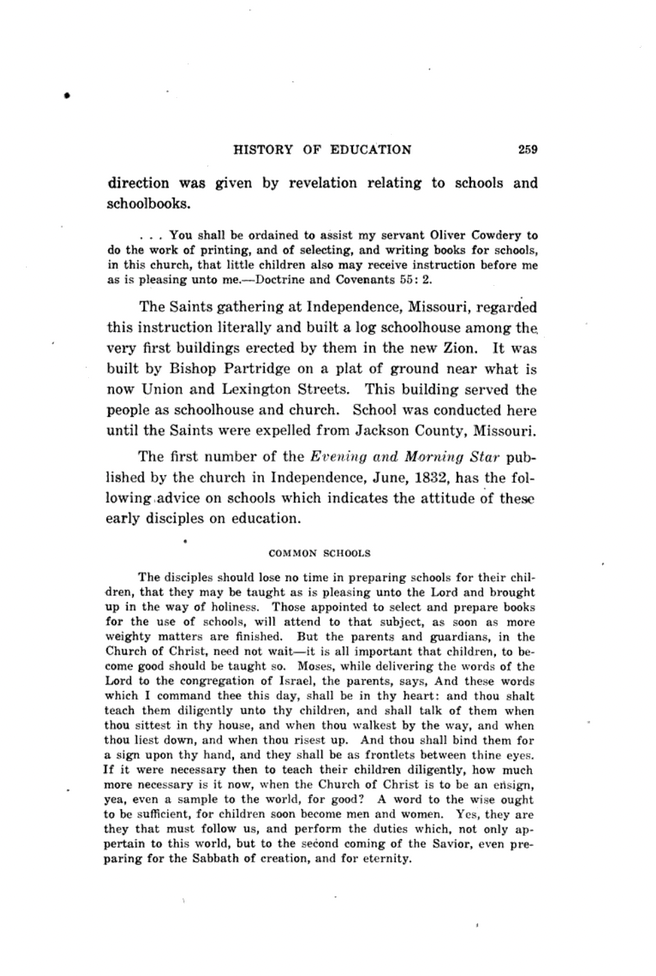Joseph Smith went to school and was not as ignorant as some portrayed him.
- Type
- Periodical
- Source
- H. S. Salisbury
- Hearsay
- Secondary
- Reference
H. S. Salisbury, "History of Education in the Church of Jesus Christ of Latter Day Saints," Journal of History 15, No. 3 (July, 1922), 257-58
- Scribe/Publisher
- Journal of History, H. S. Salisbury
- Audience
- General Public
- Transcription
The enemies of the Prophet Joseph Smith accuse him of being an ignorant young man at the time he received the first revelation. The defenders of the church have exaggerated his lack of learning. . . .
He was not as ignorant as his enemies would have us believe, anyhow. I have his New England Reader, used by him in school, and afterwards by his sister Catherine, who gave it to me, and it would take some of our college and university men to fully appreciate its lofty sentiment, expressed in the sesquipedal verbiage of the noted scholars and writers of the great Puritan age, from Milton up to the beginning of our Constitutional Period.
He, and many of the early church men, were the product of the best Puritan stock, with whom education was one of the first considerations. Joseph Smith, jr.'s, maternal grandmother, Lydia Gates Mack, was a school-teacher and taught his mother. Joseph Smith, sr., was a public-school teacher in Royalton, Vermont. His wife, Emma Hale, was also a school-teacher, a woman of liberal culture and insistent on education. Inasmuch as New England had enjoyed free public schools for nearly two centuries before Joseph Smith appeared upon the stage of action, and in light of the fact that his immediate ancestors were people of high rank in Massachusetts, and of the teaching profession, it is unreasonable to suppose that he had absolutely no common education.
- Citations in Mormonr Qnas
The B. H. Roberts Foundation is not owned by, operated by, or affiliated with the Church of Jesus Christ of Latter-day Saints.



